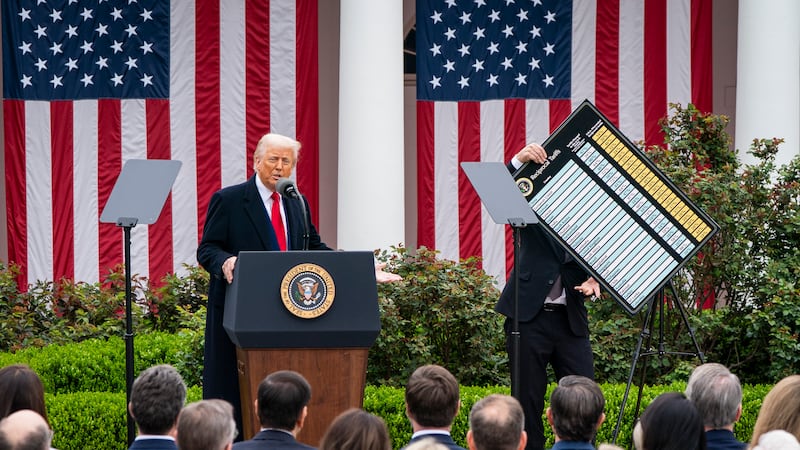US Democratic presidential candidate Hillary Clinton denounced another US company for relocating to Ireland through a "corporate inversion," calling the move to avoid American taxes "outrageous".
Mrs Clinton criticised the $16 billion (€14.7 billion) merger of Johnson Controls, a US maker of car batteries and heating equipment, and Tyco International, a company headquartered in Cork which specialises in fire protection systems, as a transaction that would leave American taxpayers out of pocket.
The merger will allow the American company to avoid the US corporate tax rate of 35 per cent by adopting the company’s Irish legal address to avail of the Irish corporate rate of 12.5 per cent, despite the new company being majority-owned by the US firm’s shareholders.
The Clinton presidential campaign team referred in a statement to the two companies benefiting from $150 million in tax savings “by moving abroad to Ireland to shirk its US tax obligations.”
“It is outrageous when large multinational corporations game the tax code and shelter money overseas to avoid paying their fair share, including through manoeuvres like inversions,” said Mrs Clinton.
The former secretary of state, who is leading the national polls to be the Democratic presidential nominee in November's election, last month criticised as "offensive" the tax-driven merger of US drug company Pfizer with Dublin-based Allergan in another inversion deal.
Mrs Clinton said that these kinds of deals leave American taxpayers “holding the bad while corporations juice more revenues and profits”.
“I have a detailed and targeted plan to immediately put a stop to inversions and invest in the US, block deals like Johnson Controls and Tyco, and place an ‘exit tax’ on corporations that leave the country to lower their tax bill,” said the former US senator.
Bernie Sanders, the self-described socialist who is mounting a serious challenge against Mrs Clinton in the Democratic race, said that the merger "would be a disaster for American taxpayers".
Mrs Clinton wants to curb inversions by forcing a foreign company targeted by a US firm to maintain a 50 per cent shareholding in the merged entity. As president, she would also apply an exit tax on overseas earnings where they would try to avoid this threshold.
Mrs Clinton's comments echo criticism of President Barack Obama who has accused US companies of being unpatriotic in participating in inversions to shift their headquarters overseas.
He singled out Ireland in an interview in 2014, admonishing American companies for becoming “magically an Irish company” through inversion deals.
The Obama administration has cracked down on inversions but the support of the US Congress is required to stamp out the practice.
Democrats and Republicans are opposed to inversions but disagree on how to end them. Congressional Democrats have called for curbs on inversions similar to the restrictions proposed by Mrs Clinton.
Republicans want comprehensive tax reform that includes shifting to a system where American companies do not pay US taxes on all worldwide income but pay taxes in each country on a territorial system.
“Congress ought to examine viable bipartisan solutions that will effectively target and combat inversions and not tip the balance to tax-driven foreign acquisitions of US firms,” said senior Republican Orrin Hatch, chairman of the US Senate finance committee.
















